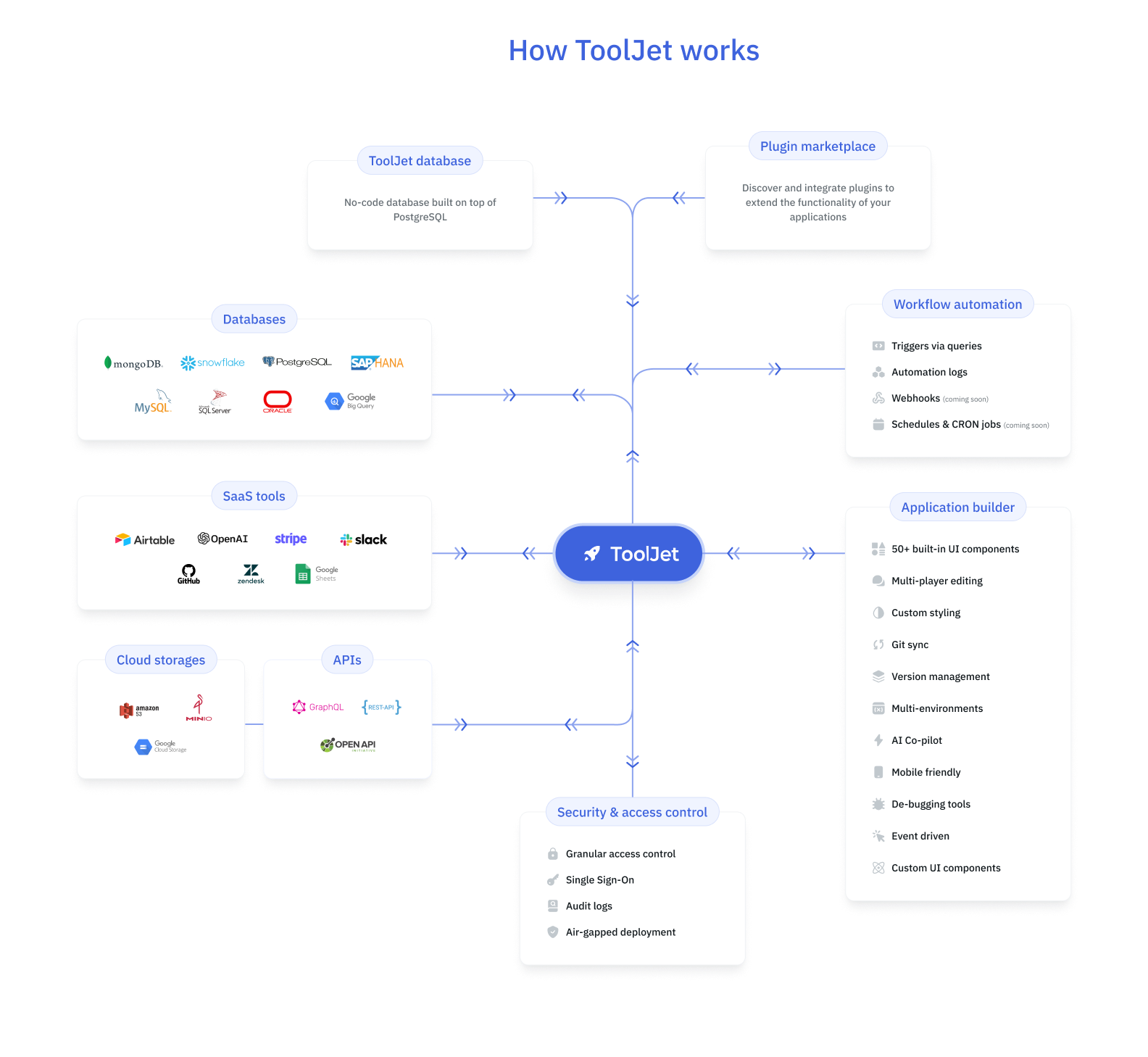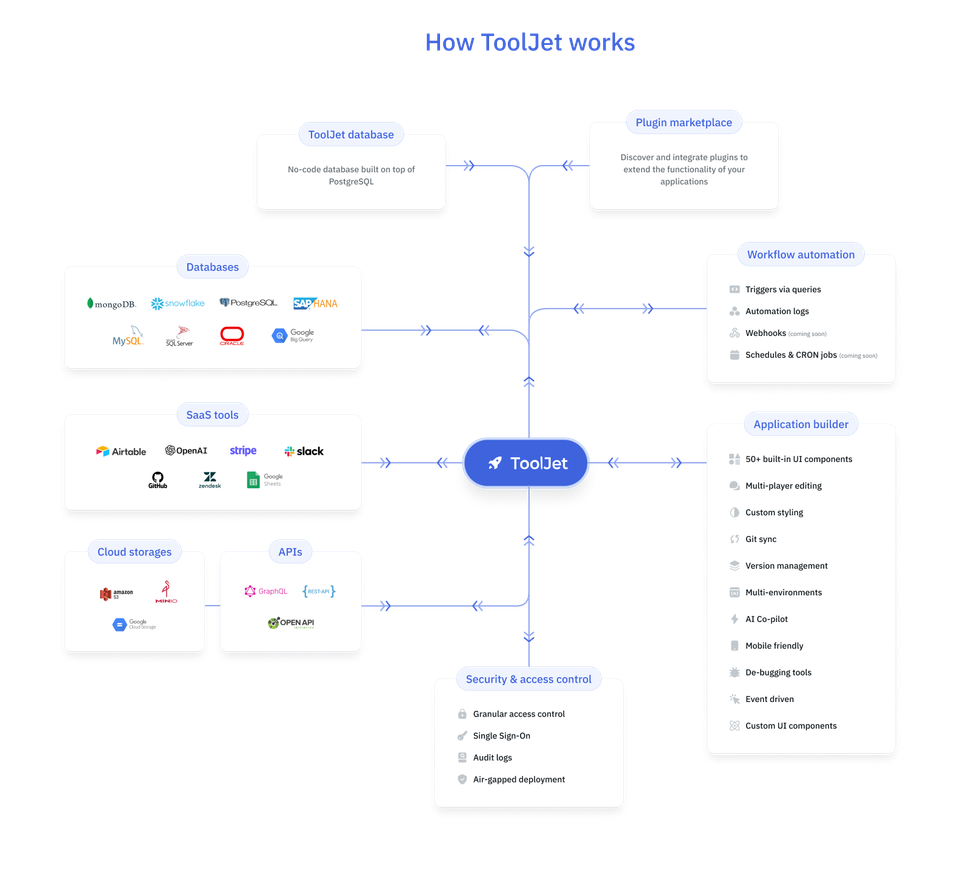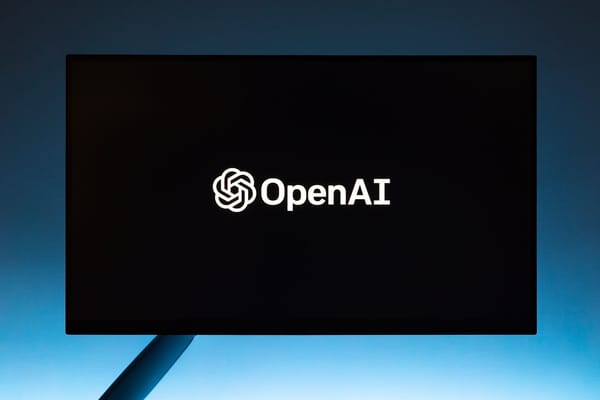Building Smarter Business Apps: 9 Open-Source Frameworks and Platforms for 2025 - Why Not Odoo?
Are You Truly Ready to Put Your Mobile or Web App to the Test?
Don`t just assume your app works—ensure it`s flawless, secure, and user-friendly with expert testing. 🚀
Why Third-Party Testing is Essential for Your Application and Website?We are ready to test, evaluate and report your app, ERP system, or customer/ patients workflow
With a detailed report about all findings
Contact us nowTable of Content
Back Story: Why My Friend Ditched Agencies for Low-Code and What He Learned
A friend of mine, a notable manufacturer in Konya, Turkey, recently told me about his journey of moving away from relying on software agencies. Frustrated with unreliable local software developers and agencies, he decided to take matters into his own hands by learning and using a low-code platform to create custom apps tailored to his workflow.
While the process was demanding, he found it liberating to finally have complete control over his business tools.
But as he looks toward the future and plans his next set of apps, he's considering alternatives to the proprietary low-code platform he's been using.
This prompted me to research the best options out there, and it became clear that businesses have two major paths: building apps with business-focused frameworks or using low-code platforms.

Here's what I learned about business apps and how you can decide which path works best for you.
What Is a Business App?
A business app is more than just software. It’s the backbone of daily operations, streamlining workflows, managing resources, and enhancing productivity.
From inventory tracking to customer management, business apps are designed to solve real problems specific to your industry.
Some businesses may consider using ERP suites, while others prefer to build their own custom tools.
The Infrastructure for a Business App
Building a reliable business app requires attention to infrastructure. Here are the key components:
1- Data Management:
When it comes to building a business app, data management isn’t just a feature—it’s a must-have. A secure database serves as the foundation, ensuring your data is stored, organized, and easily accessible when needed. But it’s not just about storage.
Your database should offer top-notch security, including encryption and user access controls, so your sensitive information stays protected.
Plus, it needs to handle both structured and unstructured data while delivering fast, reliable performance to keep up with your business demands. If your data management isn’t solid, your entire app experience could fall apart.
2- User Interface (UI)
A great business app starts with an intuitive clean user-friendly interface. Your business UI needs to be clean, easy to navigate, and designed for seamless interaction. Users shouldn’t have to think twice about where to click or how to complete tasks.
The best interfaces guide users effortlessly, enhancing productivity without unnecessary complexity.
Whether on desktop or mobile, a polished, responsive design is key to keeping users engaged and satisfied.
3- Integration: Connecting the Dots for Better Results
Integration is a game-changer for business apps. It’s not just about connecting tools—it’s about creating a unified system where everything works seamlessly together.
Whether it’s linking your enterprise ERM or CRM with accounting software or syncing inventory systems, integration streamlines workflows and reduces manual work.
The benefits are huge: fewer errors, better data flow, and increased productivity. For businesses, it means less chaos and more time to focus on growth and innovation.
4- Scalability: Built for Growth
Scalability ensures your app grows with your business. Whether you're adding users, features, or handling more data, a scalable app adapts effortlessly. It’s about future-proofing, so you’re ready for anything.
5- Security: Lock It Down
Security is non-negotiable for business apps. Robust measures like encryption, firewalls, and secure protocols protect sensitive data from breaches.
Identity and Access Management (IAM) ensures only authorized users access critical information. Strong security builds trust, safeguards your reputation, and keeps operations running smoothly.
6- Automation Tools: Key for Success
Automation tools are the secret weapon for boosting efficiency. By handling repetitive tasks automatically, they free up time, reduce errors, and let you focus on what matters.
Why Choosing the Right Platform Matters
Not all platforms are created equal, and the wrong one can create long-term headaches. Here's why the choice is critical:
- Flexibility: Can the platform adapt to your unique business needs?
- Cost Efficiency: Proprietary platforms often come with steep licensing fees.
- Ownership: Are you in control of the app, or is it locked behind a vendor's wall?
- Support and Community: An active developer community can save you from frustration.
- Future-Proofing: Will the platform stay relevant as technology advances?
No-Code vs. Low-Code vs. Full Development
Let’s break down the key differences:
- No-Code: No-code platforms are designed for non-developers, allowing app creation without writing a single line of code. They’re great for simple, quick solutions or prototypes but lack the flexibility needed for complex or scalable business applications. While tempting for ease of use, I don’t recommend them for serious business apps due to their limitations in customization and long-term viability.
- Low-Code: Offers a balance—minimal coding with powerful customization. Ideal for businesses that need advanced features but don’t want to start from scratch.
- Full Development: Building an app from the ground up gives ultimate flexibility but requires significant resources, including time, money, and technical expertise.
In this post, we will go through the best open-source alternative to build usable business app for enterprises.
Frameworks and Platforms to Build Business Apps
1- ERPNext
ERPNext earns the top spot on our list, and for good reason. It’s a rock-solid ERP solution that’s consistently reliable compared to other alternatives. What really sets it apart is its thriving community of developers who actively contribute extensions, plugins, and integrations, making it incredibly versatile.
Whether you need customization or ongoing support, ERPNext delivers. It’s not just software—it’s a platform backed by innovation and a strong support network.
2- Django
Django is another top choice, especially if you have an in-house Python developer on your team. It’s been a powerhouse since 2005, earning its reputation as a long-standing fighter in the development world. Django has been the backbone for countless business applications and well-known platforms like Instagram, Pinterest, and Disqus.
Even major companies like NASA, Mozilla, and Spotify rely on Django for its scalability and reliability.
So, why do we prefer Django? It’s not just cool—it’s efficient, secure, and versatile. Its "batteries-included" framework offers everything you need right out of the box, from authentication to admin panels.
Plus, its active community ensures you’ll always find support, plugins, and tools to extend its capabilities. For businesses serious about robust, scalable apps, Django is a no-brainer.
3- Dolibarr: Compact, Reliable, Old, and Surprisingly Versatile
Dolibarr is a tried-and-true ERP solution, ideal for small businesses and clinics. Over the years, we’ve installed it for several clients and customized setups to fit their needs.
It is lightweight, modular, and easy to use, as it handles invoicing, inventory, and customer management effortlessly. Despite its age, Dolibarr remains a reliable, cost-effective choice.
4- Idurar ERP
Idurar ERP/ CRM stands out as a modern, open-source platform for businesses looking to streamline operations. It offers a seamless blend of ERP and CRM features, making it a versatile choice for managing everything from customer relationships to business workflows. With its clean architecture and modular design, Idurar is perfect for building custom business apps tailored to specific needs.
We recommend Idurar because it’s developer-friendly, fully customizable, and backed by open-source flexibility. Whether you’re managing inventory, sales, or customer interactions, it’s a robust platform that adapts to your business. Plus, its active community and regular updates ensure it stays relevant and reliable for modern business demands.
5- Ever Gauzy
Ever Gauzy is an open-source business management platform that seamlessly integrates ERP, CRM, HRM, ATS, and PM functionalities. It offers a unified solution for accounting, human resources, invoicing, time management, and project management.
Key Features:
- Employee Activity Tracking: Monitor applications used, websites visited, performance metrics, and access logs.
- Employee Performance Monitoring: Assess and enhance employee productivity through detailed analytics.
- Time Tracking: Track work hours, weekly activities, and task overviews with automated screenshots and manual time entries.
- Invoicing: Generate invoices, track statuses, maintain archives, and send invoices via email.
- Project Management: Manage tasks, budgets, and sales information within a single platform.
Why We Recommend Ever Gauzy:
Ever Gauzy's modular design and comprehensive feature set make it an excellent choice for building business applications. Its open-source nature allows for extensive customization, ensuring the platform can be tailored to specific business requirements.
The active community support and regular updates contribute to its reliability and relevance in the ever-evolving business landscape. For organizations seeking a flexible, all-in-one solution, Ever Gauzy stands out as a robust and adaptable platform.
6- Metafresh
Metasfresh is a powerful open-source ERP designed for scalability and customization. With its modern interface, robust features, and active community, it’s ideal for building business apps. Many companies prefer Metasfresh for inventory, sales, and CRM.
Metasfresh can be used to build business apps, and it’s an excellent choice for such purposes. Its open-source nature allows for extensive customization, making it adaptable to various business needs. With robust features like inventory management, sales tracking, and CRM, Metasfresh provides a strong foundation for creating tailored business applications.
Many companies use Metasfresh to build apps that streamline operations, enhance productivity, and integrate seamlessly with existing workflows. Its scalability and active community support further ensure that it remains reliable for both small businesses and larger enterprises seeking flexible, cost-effective solutions.
7- Totum (Ideal for Data-Driven Apps)
Totum is an open-source platform built for creating flexible, data-driven business apps without heavy coding. Designed with modularity in mind, it allows users to customize workflows, manage data, and automate processes through a spreadsheet-like interface. Its intuitive setup is great for businesses looking to quickly deploy tools tailored to their specific needs.
Is it good for building business apps? Absolutely. Totum excels in handling complex business logic and offers robust tools for creating scalable applications. Whether for inventory, analytics, or workflow automation, Totum’s flexibility makes it a strong choice for businesses seeking a lightweight yet powerful solution.
8- NocoDB - Airtable Alternative and Data-Driven Apps
As a Low-code NocoDB transforms databases into smart business apps effortlessly. With JS and Flutter SDKs plus a Headless Production-Friendly API, it’s perfect for building internal tools and enterprise apps. Flexible, scalable, and developer-friendly, it’s a top choice.
9- ToolJet - for Better Integrations and Internal Tools
ToolJet is an open-source low-code platform designed for creating internal tools and business apps quickly. It supports integration with various data sources, has a drag-and-drop builder, and offers robust customization.
With its API integrations and developer-friendly tools, ToolJet is ideal for enterprises seeking efficient, scalable solutions for internal workflows and operational apps.

Is it good for building business Apps?
Yes, ToolJet is a solid choice for building business apps. Its low-code nature allows rapid development, while its flexibility supports customization to fit specific business needs.
With robust integrations, a drag-and-drop builder, and API support, ToolJet is particularly well-suited for creating internal tools, dashboards, and operational apps that streamline workflows in enterprises. For businesses seeking efficiency and scalability, it’s a strong contender.
Why Not Odoo?
Dropping Odoo: Are These Better Alternatives?
Years ago, we worked with Odoo for a limited number of clients, developing custom solutions on top of its platform. While it offered extensive functionality, we began exploring alternatives after noticing a trend: several of our clients eventually dropped Odoo, opting for other platforms to build their business apps.
Their feedback, coupled with our own experience, highlighted some of the challenges that make Odoo less ideal for certain businesses.
Why Not Odoo?
- Heavy and Resource-Intensive: Odoo is powerful, but that power comes with a price—it's resource-heavy and can feel over-engineered for businesses that don’t need its full suite of features.
- Complexity: Its steep learning curve often frustrates users, especially those who require simpler solutions.
- Costly Customization: While open-source at its core, meaningful customization and implementation often require significant time and financial investment.
- Dependency on Ecosystem: Odoo’s ecosystem ties you to its modules, making integration with external tools or migrating away a daunting task.
The Shift to Alternatives
In response, we began recommending and implementing alternative platforms like ERPNext, Dolibarr, and Idurar. These solutions offer lighter, more flexible options while retaining the robust features businesses need.
They also provide better customization capabilities and more accessible support communities, making them ideal choices for businesses looking to streamline their operations without the overhead that Odoo often brings.
For businesses rethinking their tech stack, these alternatives offer a fresh approach to building efficient, scalable apps tailored to their specific needs. The right platform isn’t just about features—it’s about finding the right fit for your workflows and goals.
Choosing the Right Platform for Your Business Apps
Building business apps is no small feat, but choosing the right platform can make all the difference. Whether you prioritize flexibility, scalability, or ease of use, the options discussed here—like ERPNext for comprehensive ERP needs, Django for custom builds, or low-code platforms like ToolJet—each offer unique advantages.
To decide what’s best for your business, start by evaluating your needs: Do you require complete control and customization?
Or do you prefer rapid development with pre-built solutions? Consider your team’s skills, your budget, and the long-term viability of the platform. The right choice will not only streamline your operations but also set your business up for sustainable growth.
Remember, the key isn’t just building apps; it’s building the right apps for your business.










